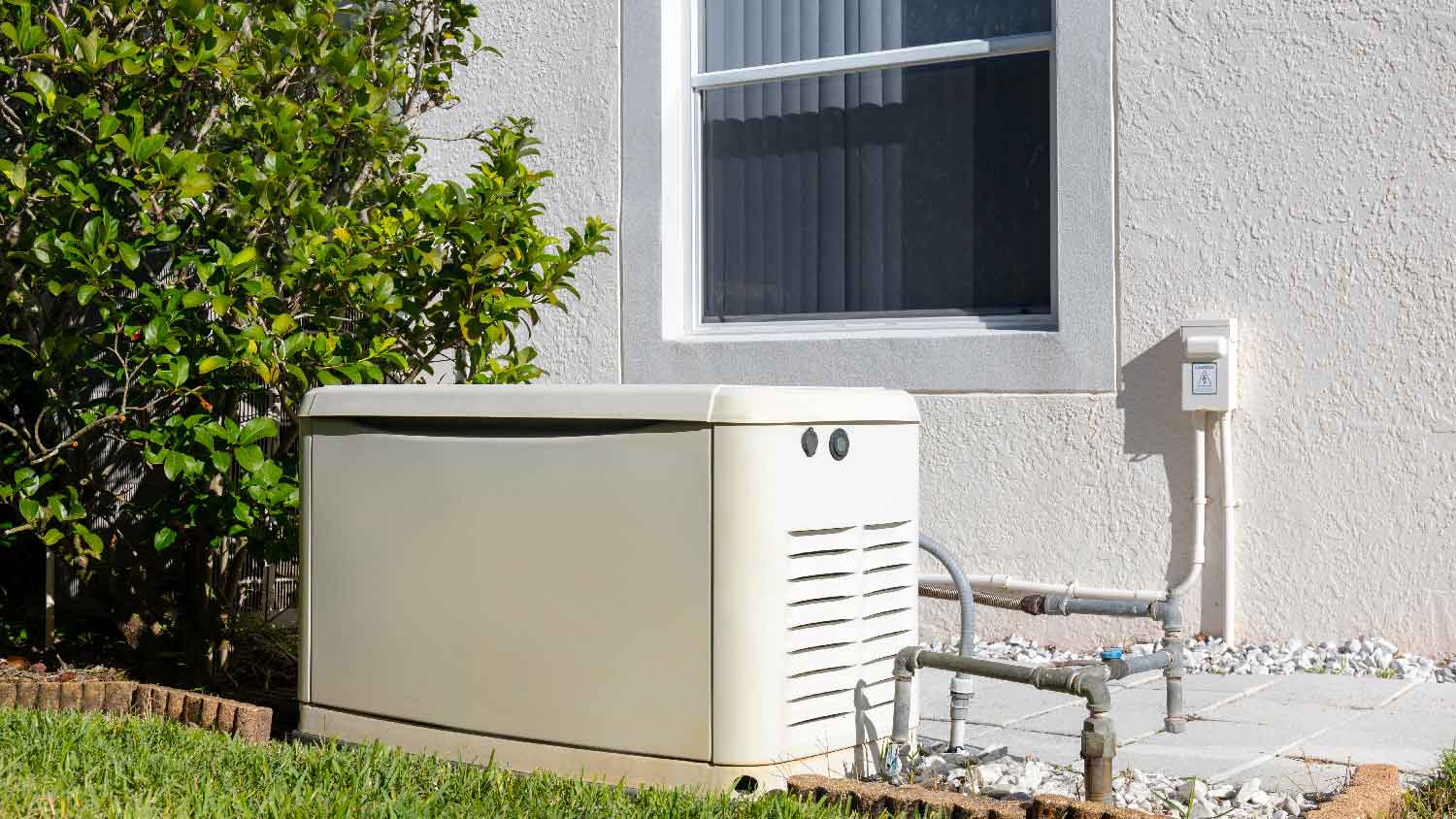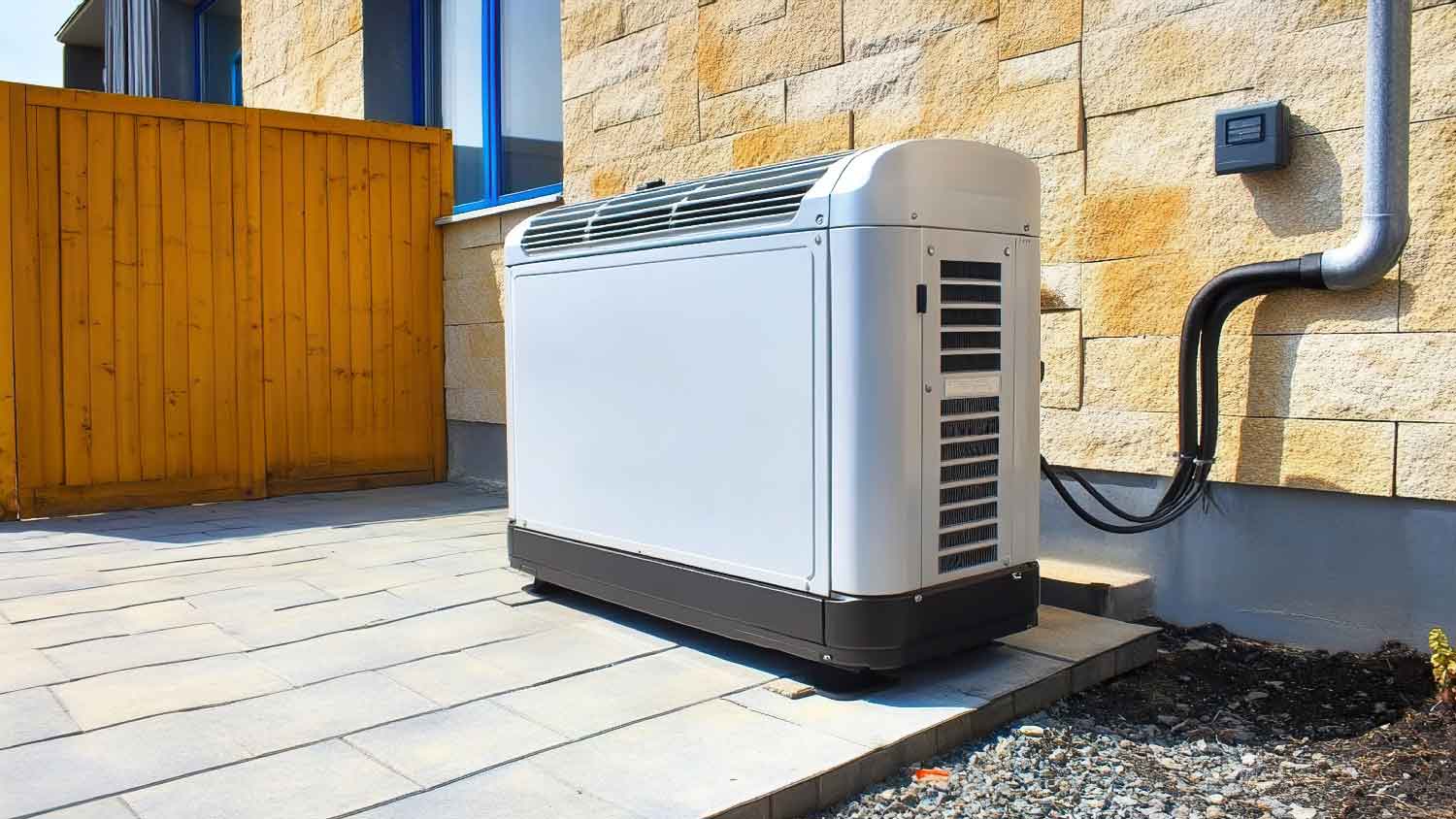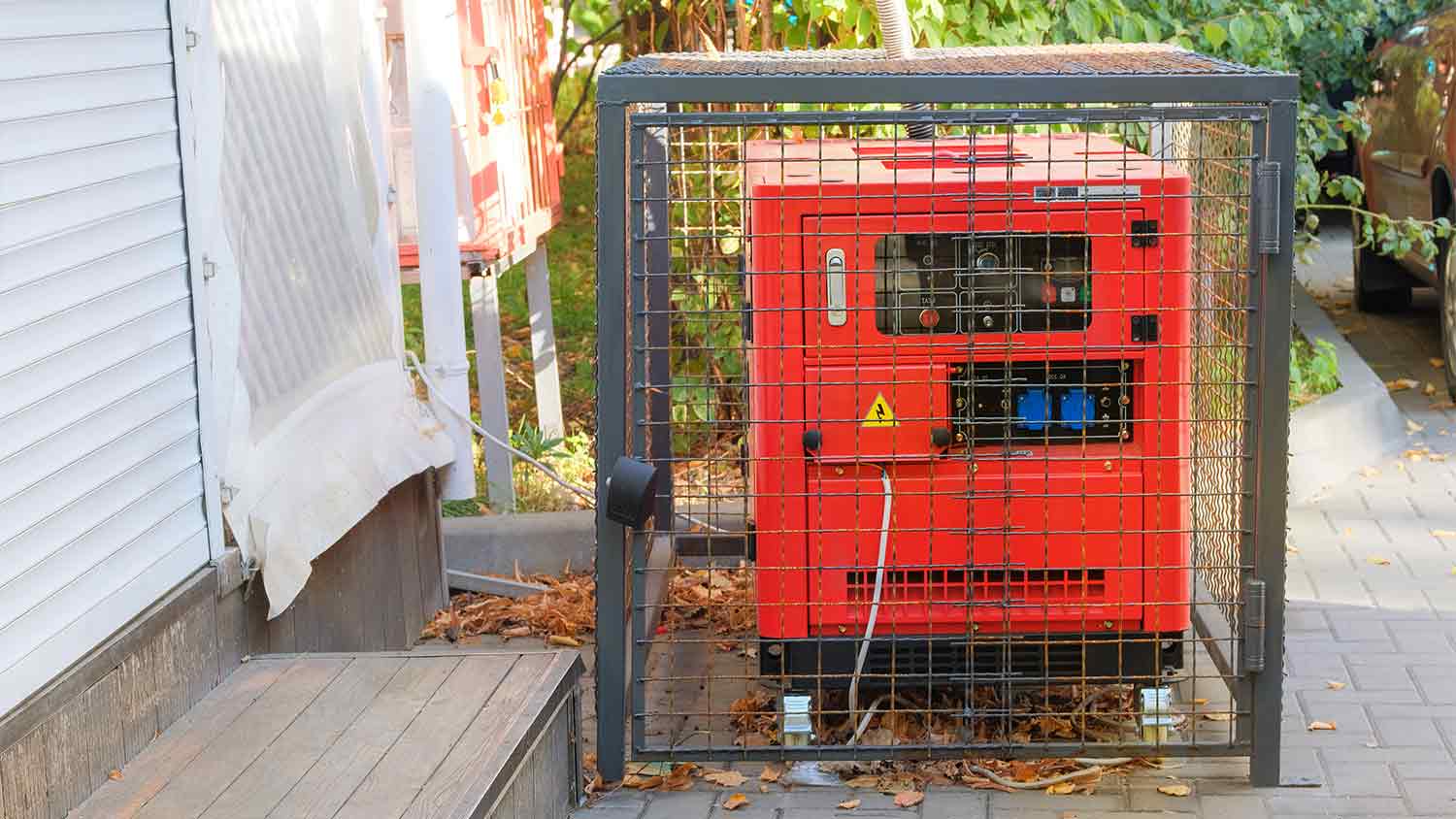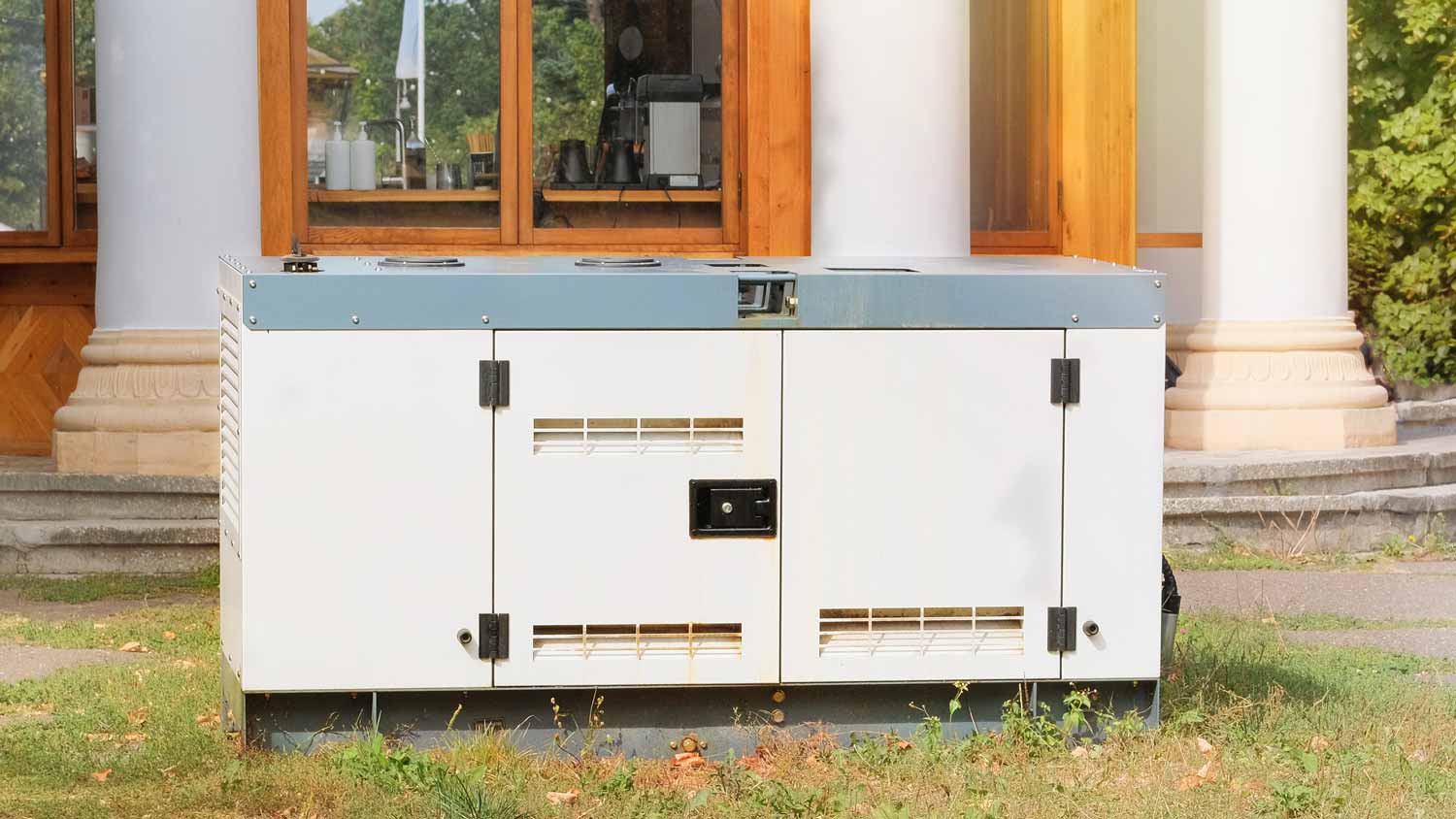Is a Whole-House Generator Worth It? What to Know Before You Invest
It may not generate a significant ROI, but there’s still value to consider
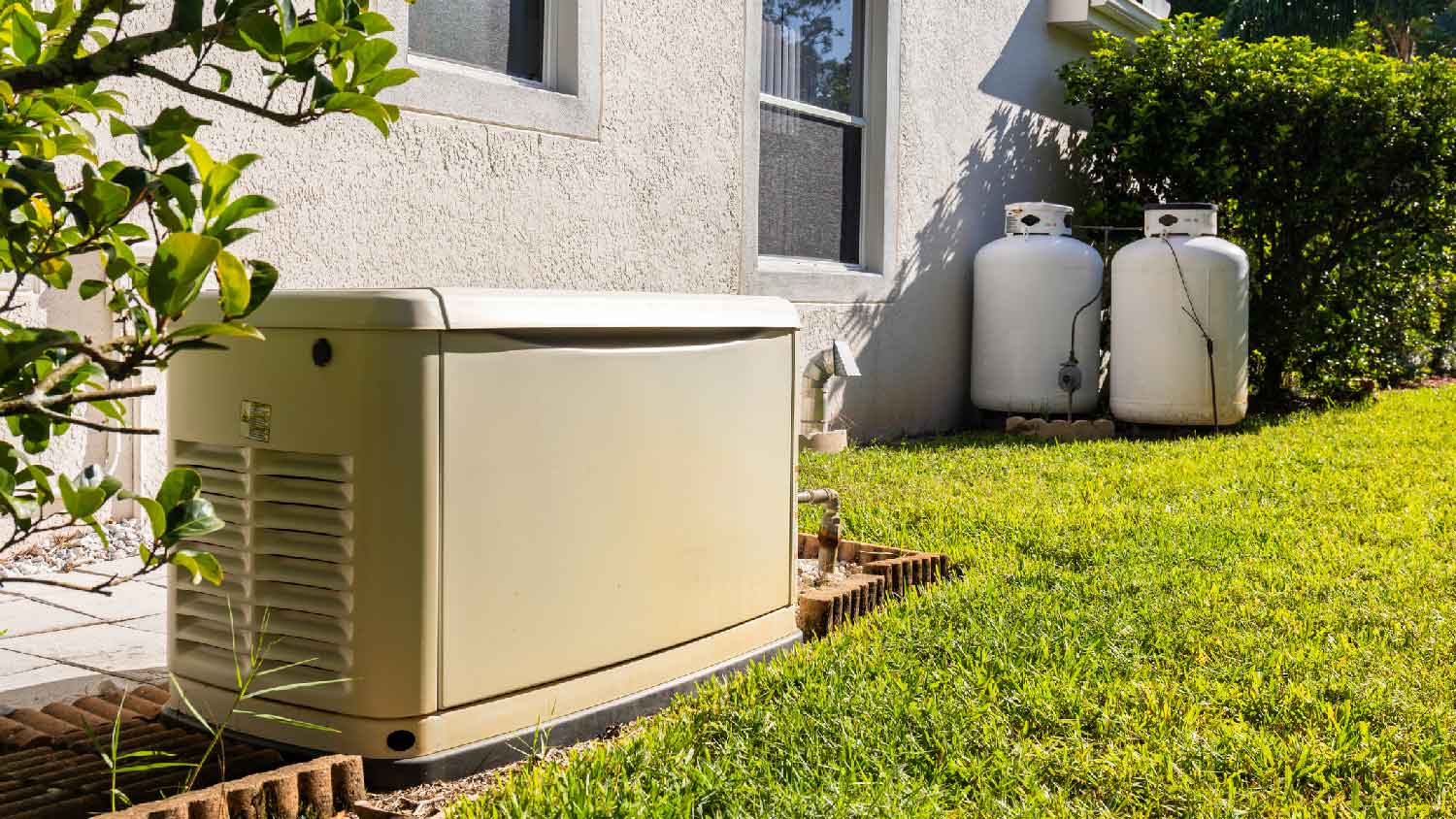

A whole-house generator can recoup 50% to 150% of its value based on factors like size and location-based demand.
Homes in outage-prone areas are more likely to see higher ROI value from a whole-house generator.
Whole-house generators can prevent costly damage from power surges and temperature-related incidents.
Hiring a generator professional for installation is crucial due to safety concerns and building code compliance.
Wondering whether investing in a whole-house generator is worth it? The question has sparked some debate, and answers vary on a case-by-case basis. On average, you can recoup 50% to 150% of your initial investment in resale value, or add around 2% to 3% to the value of your home, depending on factors such as the home’s location and the size of the generator.
Still, while a whole-house generator may not offer the most bang for your buck in terms of ROI, it provides significant value in other areas, such as preventing costly repairs and the ability to power your essentials during power outages. This guide will detail what consider when weighing the potential ROI of a whole-house generator.
Home Value Rating: 1/5
A whole-house generator won’t have a significant financial ROI, but it can offer a number of other benefits.

Factors That Influence a Whole-House Generator Value
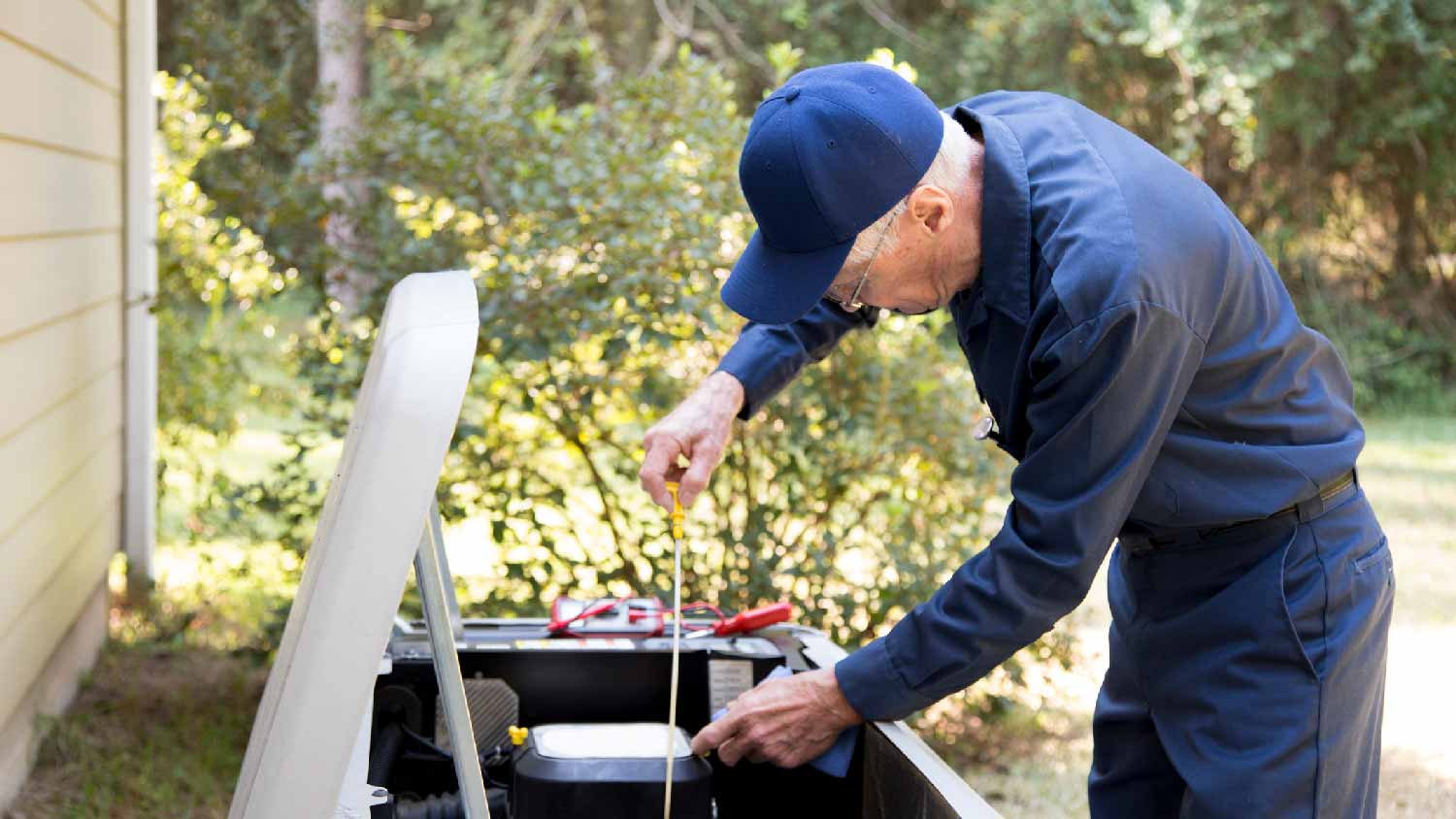
Resale values heavily depend on the demand for generators in your location. You may only partially recoup your investment, or you could potentially turn a small profit under ideal circumstances. Let’s review the key factors that play into the ROI for a whole-house generator installation.
Location
When it comes to the ROI of a whole-house generator, a major factor is location. Homes in areas that see frequent power outages, whether from extreme weather conditions or unreliable electrical grids, will benefit the most from the function of a whole-house generator. Likewise, potential homebuyers in outage-prone areas are more likely to see a backup generator as a key selling point, helping the home stand out in the market and demand a higher sale price.
Whole-House Generator Size
As a general rule, the larger your whole-house generator’s capacity, the more attractive it will be for potential buyers. This translates to the value in your personal use: By finding the right size generator to accommodate your home’s electrical needs, your essential devices, systems, and appliances will stay active if there’s an outage.
Appropriate whole-house generator sizes vary based on electrical needs:
| Whole-House Generator Size (kW) | Home Size (Square Feet) | Average Resale Value |
|---|---|---|
| 7.5–9 | <1,000 | $1,000–$5,250 |
| 10–15 | 1,000–1,500 | $2,000–$7,500 |
| 16–22 | 2,000–2,500 | $2,300–$9,000 |
| 23–36 | 3,000–4,000 | $3,000–$21,000 |
| 37–48 | 5,000+ | $7,500–$31,500 |
Repair Costs
When determining if a whole-house generator is worth it, consider the unseen savings that arise from preventing costly damages. For example, if there is an extended outage during freezing temperatures, plumbing pipes can freeze, crack, and cause flooding. There’s also potential for power surges when the power kicks back on, which can damage your pricey electronics and appliances. By investing in a whole-house generator, you won’t have to spend money on repairing or replacing your home’s systems, appliances, and electronics after an outage.
DIY vs. Hiring a Pro
Finding a professional who installs whole-house generators is an absolute necessity for this project. DIY isn’t an option, as these units must be properly connected to your home’s main power supply and natural gas line, making the installation highly technical and subject to strict building codes and safety regulations. Incorrect installation can lead to serious risks, including gas leaks, carbon monoxide exposure, and electrical hazards.
Hiring a professional local generator installer that works with whole-house generators ensures that your generator is installed correctly, meets local building codes, and functions safely and efficiently.
Quality and Materials
Investing in a high-quality generator will bring the most value to your personal use. For example, you can find the quietest whole-house generator to keep noise levels low, or opt for a fuel-efficient system to minimize operating costs. While these benefits might not be readily apparent to the buyer or generate a tangible ROI, they still deliver value nonetheless.
How to Estimate the Added Value of a Whole-House Generator
To determine if a whole house generator is worth it for your home, here are the key steps to take:
Compare home sales: Look at homes in your area that have sold with and without standby generators to gauge their impact on resale value.
Assess local power reliability: If outages are frequent, a generator could be a major selling point for potential buyers.
Calculate potential ROI: Weigh the upfront installation costs against the expected home value increase and personal benefits.
Consult an appraiser: A real estate appraiser can help estimate the impact of a generator on your property’s value.
How Much Does It Cost to Install a Whole-House Generator?
The average cost to install a whole-house generator is $5,200, with most installations falling within the range of $1,600 to $13,500. In areas with low demand for backup generators, you might only recoup around 50% of your investment, with resale values of between $800 to $6,750. In hurricane-prone areas and other places where demand is higher, resale values could yield a 150% return on investment, ranging from $2,400 to $20,250.
Is a Whole-House Generator Worth It?
Above all, a whole-house generator is an investment in your personal comfort, safety, and security. This is why it’s essential to think of the pros and cons of a whole-house generator and what they mean for your household, rather than strictly in a financial sense. Here are the top pros and cons to consider when determining if a whole-house generator is worth it for your home.
| Pros | Cons |
|---|---|
| Provides continuous power during outages | High upfront investment |
| No fuel storage necessary | Requires regular maintenance |
| Appeals to buyers in outage-prone areas | May not add significant value in stable power areas |
| Prevents costly repairs and food spoilage during an outage | Ongoing fuel costs during operation |
How Angi Gets Its ROI Data
Home is the most important place on earth, which is why Angi has helped more than 150 million homeowners transform their houses into homes they adore. To help homeowners maximize the value of their investments, we gather ROI data from reputable sources, including industry reports, real estate studies, and interviews with market experts. We calculate the average resale value for projects by multiplying the ROI against the project’s average cost according to our cost data, which is sourced from thousands of real Angi customers.
Want to help us improve our data? Send us a recent project quote or home appraisal value to costquotes@angi.com. Quotes and personal information will not be shared publicly.
Frequently Asked Questions
Most homeowners won't be able to claim a home generator as a tax write-off. However, a whole-house generator may be tax-deductible in certain situations depending on its purpose. For instance, if it's needed to power essential medical equipment, it may qualify as a medical expense deduction. Also, in some cases, businesses can deduct a generator as a business expense if it supports operations. Always consult a tax professional to determine eligibility based on your specific circumstances and the applicable IRS regulations.
With regular upkeep and routine maintenance, a whole-house generator can last up to 20 years with normal use. To get the most from your home generator’s lifespan, consult your installer for expert maintenance tips and guidelines. Proper care will help ensure your generator remains reliable when you need it most.


